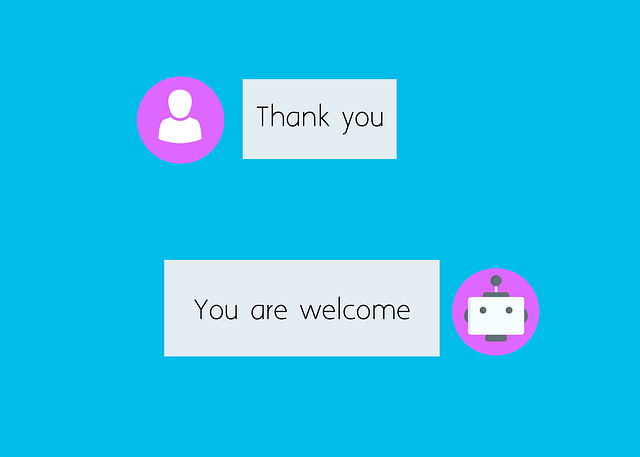Ecommerce chatbots, powered by natural language processing (NLP), offer 24/7 support and streamline online shopping experiences. They answer queries, provide personalized recommendations, facilitate purchases, and offer post-sale support, boosting customer satisfaction and sales. These chatbots collect valuable data for targeted marketing and free up human agents to handle complex issues, improving operational efficiency. By offering dynamic, personalized interactions through AI, they enhance user engagement, build trust, and automate routine tasks. Top platforms like Dialogflow, IBM Watson Assistant, Chatfuel, and ManyChat make implementation easy, while key metrics like conversation completion rates and customer satisfaction scores measure chatbot success in revolutionizing online shopping experiences.
Discover the exciting world of ecommerce chatbots—dynamic tools transforming online shopping experiences. This article explores the fundamentals and immense potential of these AI assistants, highlighting how they revolutionize customer interaction. Learn how ecommerce chatbots enhance user engagement, offer personalized support, and drive sales. From creative feature implementations to top building platforms and success measurement, we uncover strategies to create compelling, fun chatbot experiences that captivate your audience.
- Understanding Ecommerce Chatbots: The Basics and Benefits
- How Do Ecommerce Chatbots Enhance Customer Experience?
- Creative Ways to Implement Fun Features in Chatbots
- Top Platforms and Tools for Building Engaging Chatbots
- Measuring Success: Evaluating the Performance of Ecommerce Chatbots
Understanding Ecommerce Chatbots: The Basics and Benefits

Ecommerce chatbots are automated digital assistants designed to enhance customer interactions and streamline online shopping experiences. They operate through natural language processing, enabling them to understand and respond to user queries in real-time. These chatbots can perform various tasks, such as answering product-related questions, providing personalized recommendations, facilitating purchases, and even handling post-sale support.
The benefits of ecommerce chatbots are multifaceted. They offer 24/7 availability, ensuring customers receive instant assistance regardless of the time zone. This real-time support boosts customer satisfaction and can lead to increased sales. Moreover, these chatbots collect valuable customer data, which can be used for targeted marketing campaigns, improving overall business strategies. By automating routine tasks, they also free up human agents to focus on more complex issues, thereby improving operational efficiency.
How Do Ecommerce Chatbots Enhance Customer Experience?

Ecommerce chatbots are transforming the way businesses interact with their customers, offering a dynamic and personalized shopping experience. These AI-driven tools provide instant customer support, answering product queries, offering recommendations, and guiding users through the checkout process. By providing immediate assistance, they enhance customer satisfaction and build trust, leading to increased sales and repeat business.
Moreover, ecommerce chatbots can be tailored to individual user preferences, learning from past interactions to deliver targeted suggestions. This level of customization creates a unique shopping journey for each customer, fostering engagement and loyalty. They also streamline operations by automating routine tasks, allowing human agents to focus on more complex issues, ultimately improving overall efficiency and customer experience.
Creative Ways to Implement Fun Features in Chatbots

Adding fun features to ecommerce chatbots can significantly enhance user experience and engagement. One creative approach is incorporating interactive storytelling, where chatbots weave narratives around products, creating a captivating shopping journey. For instance, a chatbot could guide users through a fantasy world, describing magical items and their unique properties, encouraging them to choose and ‘acquire’ these items.
Another innovative idea is the integration of games and quizzes. Chatbots can offer product recommendations based on users’ answers to fun questions or challenges. For example, a fashion chatbot might ask users to style a virtual outfit using suggested items from its catalog, providing personalized suggestions while adding an element of play. These creative implementations not only make interactions more enjoyable but also effectively drive sales and foster stronger customer connections in the realm of ecommerce chatbots.
Top Platforms and Tools for Building Engaging Chatbots

In today’s digital era, building engaging chatbots has become more accessible than ever thanks to a plethora of top platforms and tools. For businesses looking to enhance their customer experience, particularly in ecommerce, platforms like Dialogflow (by Google) stand out for their robust natural language processing capabilities. This tool allows developers to create sophisticated chatbots that can understand and respond to complex queries with human-like accuracy.
Another popular option is IBM Watson Assistant, which offers advanced AI functionalities and easy integration with various software systems. Its ability to learn from interactions makes it a powerful tool for creating dynamic ecommerce chatbots that can provide personalized product recommendations and support 24/7. Additionally, platforms like Chatfuel and ManyChat simplify chatbot creation by offering drag-and-drop interfaces, making them ideal for non-technical users looking to implement conversational AI in their online stores without extensive coding knowledge.
Measuring Success: Evaluating the Performance of Ecommerce Chatbots

Measuring success is a critical aspect of evaluating the performance of ecommerce chatbots. Key metrics include conversation completion rates, customer satisfaction scores, and the percentage of queries resolved without human intervention. By tracking these metrics, businesses can gauge how effectively their chatbots are providing support and enhancing the shopping experience.
Ecommerce chatbots that consistently achieve high conversation completion rates and high customer satisfaction indicate successful integration. They should be able to handle a wide range of customer inquiries, from product recommendations to order status updates, without requiring human assistance. This not only improves operational efficiency but also allows human agents to focus on more complex issues, ultimately leading to better customer service overall.
Ecommerce chatbots have evolved from simple transaction facilitators to dynamic, engaging companions in the digital shopping journey. By understanding their fundamentals and leveraging creative implementations, businesses can enhance customer experiences, drive sales, and build lasting relationships. Top platforms and tools now empower entrepreneurs and developers alike to create sophisticated chatbots that deliver measurable results. As you navigate the world of ecommerce, integrating these fun, functional chatbots can be a game-changer, transforming your online store into a vibrant, interactive destination for shoppers seeking unique and personalized experiences.
